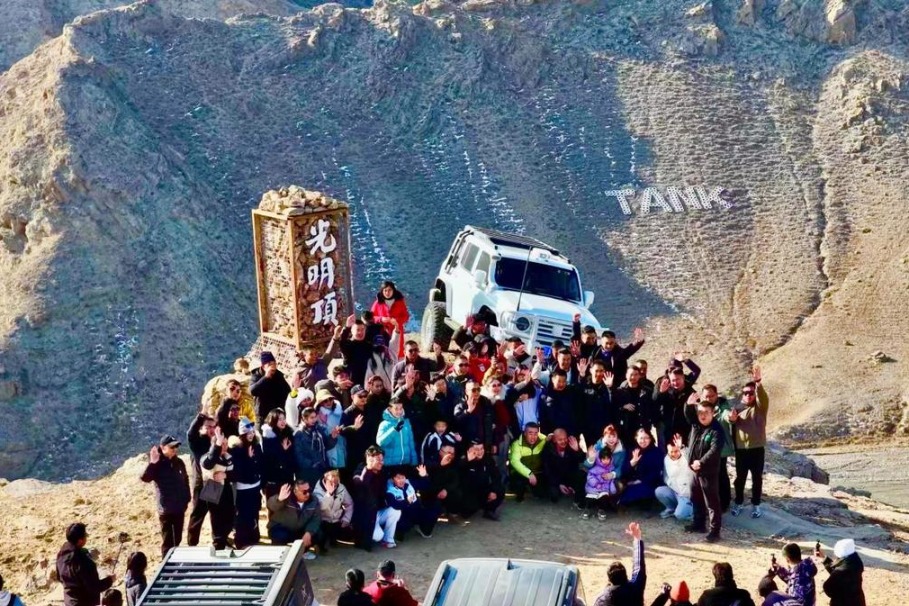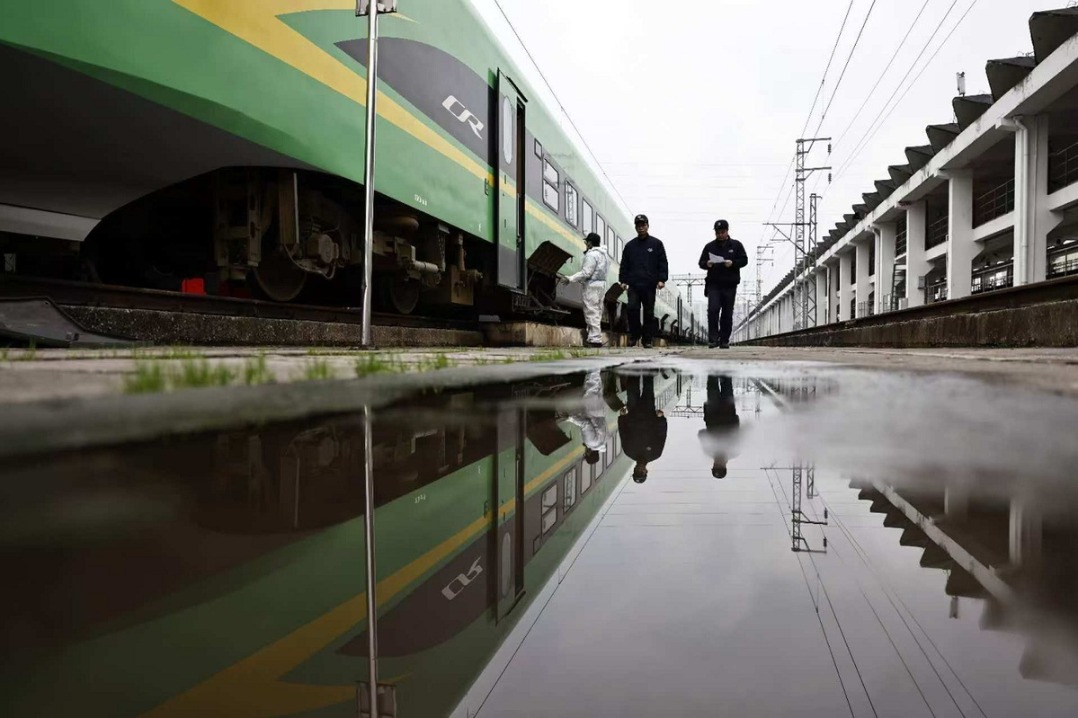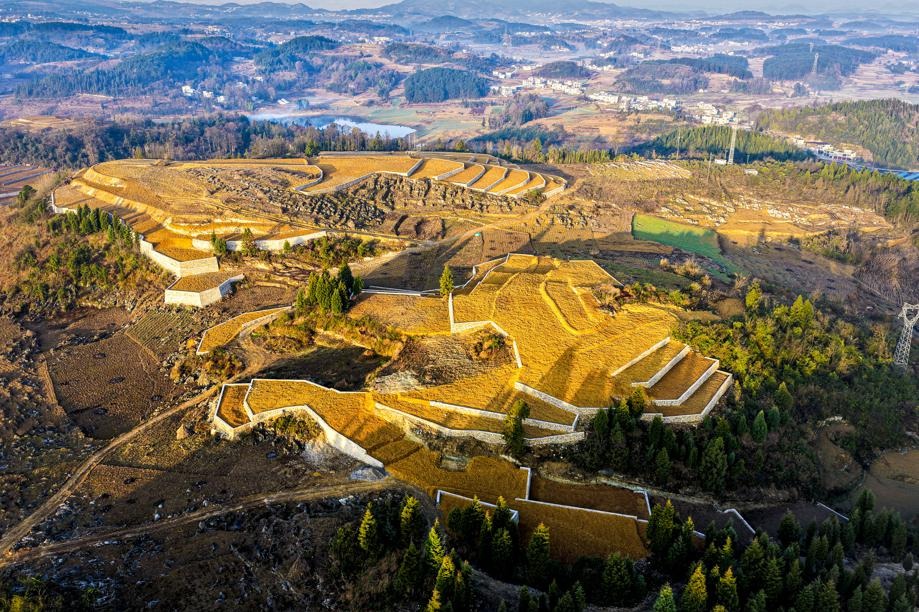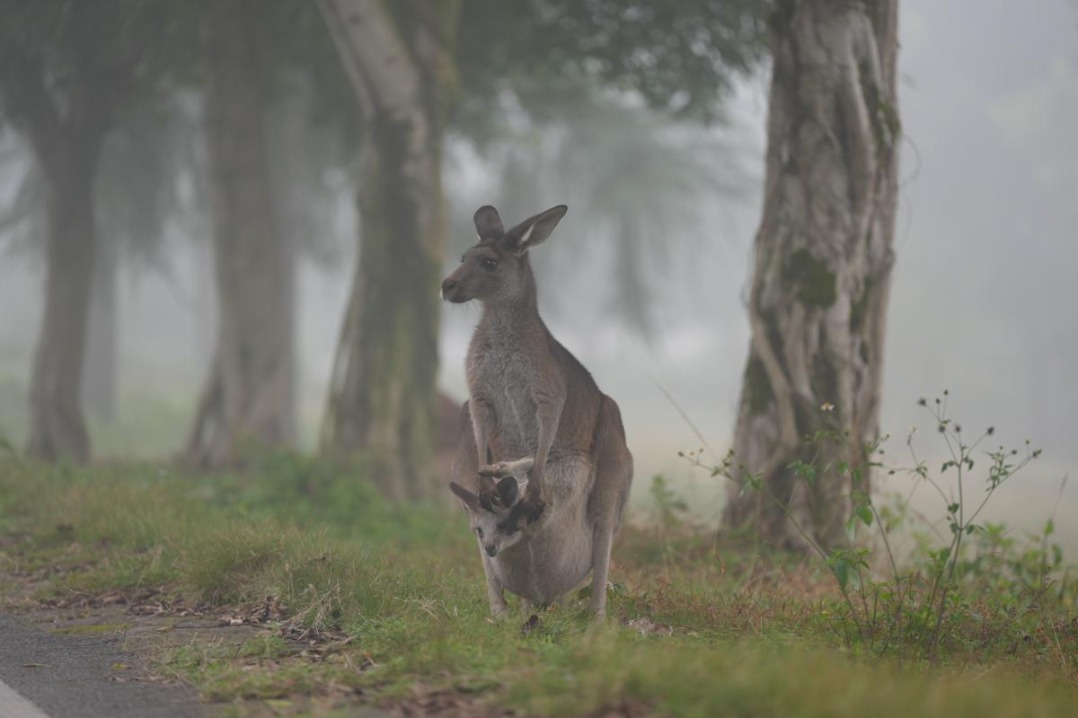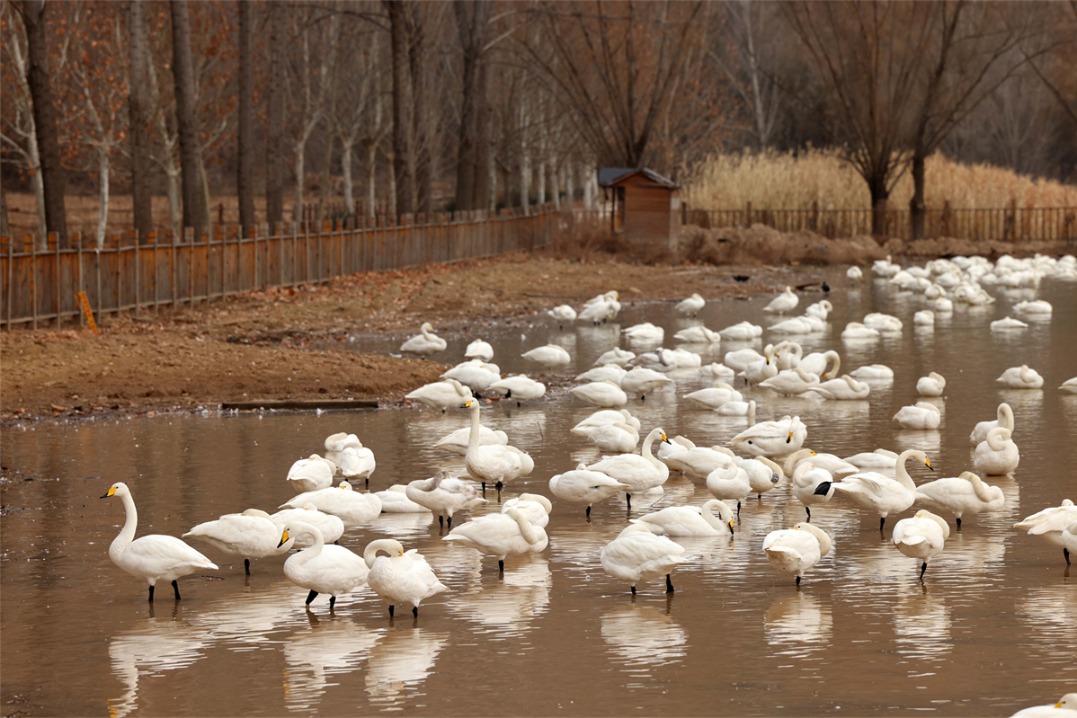Private firms help push back deserts and poverty

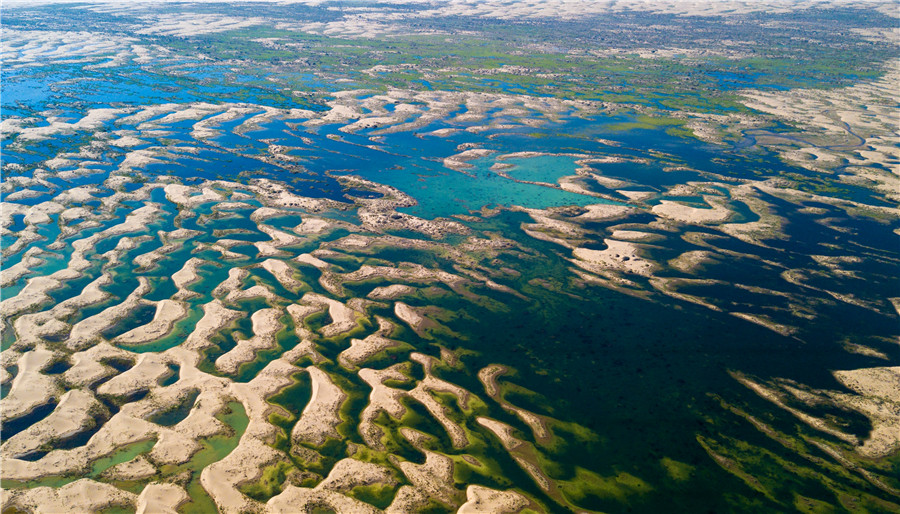
Before Elion launched its solar power project in the desert in late 2015, Zhao Rui, from Hanggin Nao'er village near the desert, made a living by farming 8,000 square meters of farmland, planting corn and wheat.
"Yields varied depending on the weather," the 40-year-old farmer said. "In good years, we could harvest 2.5 tons of grain a year. When the weather wasn't favorable, the harvest only stood at about 1 ton."
Since 2016, when Zhao and his mother moved into an 80-sq-m house built for them by the government, their life has changed dramatically due to Elion's development of the local industry.
Last year, Zhao and more than 50 others from registered poverty-stricken families signed contracts with Elion to maintain solar panels and care for the licorice planted between the panels.
His previous income from farming was barely enough to support his family, but he can now make 24,000 yuan ($3,700) a year.
"Previously, a small black-and-white TV set was the only home appliance we had," he said. "The set was given by a relative who changed to a color one more than 10 years ago. It stopped working after only a few years."
He said with his salary from Elion he had bought a 42-inch color TV, a fridge and a washing machine.
The company said it has solar panels with a capacity of 310 megawatts in operation and plans to expand that to 900 MW by next year.
Attracted by the business opportunities created by tourism development, 39-year-old Siren Babu and his wife, Yao Liping, returned to the desert in 2009 after working elsewhere for more than 10 years. The couple started a rural resort to serve tourists, offering accommodation and catering services. They also rent out more than 10 go-karts specially designed for the desert.
"When I was a little boy, we were isolated. It took three days and nights on a camel to reach the nearest town for shopping," he said.
The family now lives in the Kubuqi Desert park established by Elion in 2011 and can make more than 3,000 yuan a day during the peak summer tourist season. They have bought three cars for family use and, thanks to the road that has accompanied development, can reach the nearest town in a matter of minutes.
Wang said tourists visit the desert park about 200,000 times a year.
About 500 km west of Kubuqi, a group of entrepreneurs has turned to economic development after years of exploring remedies for desertification in Alxa League, a third of which is covered by three deserts: Badan Jaran, Tengger and Ulan Buh.
About 80 entrepreneurs set up the Society of Entrepreneurs and Ecology 14 years ago. One of its first initiatives was to try to stop residents from cutting down suosuo - a plant that can survive in the desert and help prevent desertification - by helping them shift to methane gas for heating and cooking, but it failed to achieve the desired result.
"The failure triggered heated discussion among the entrepreneurs on how to get residents to protect the trees," said Ai Luming, president of the society. "The group finally realized market means are needed to ensure that residents benefit."
















